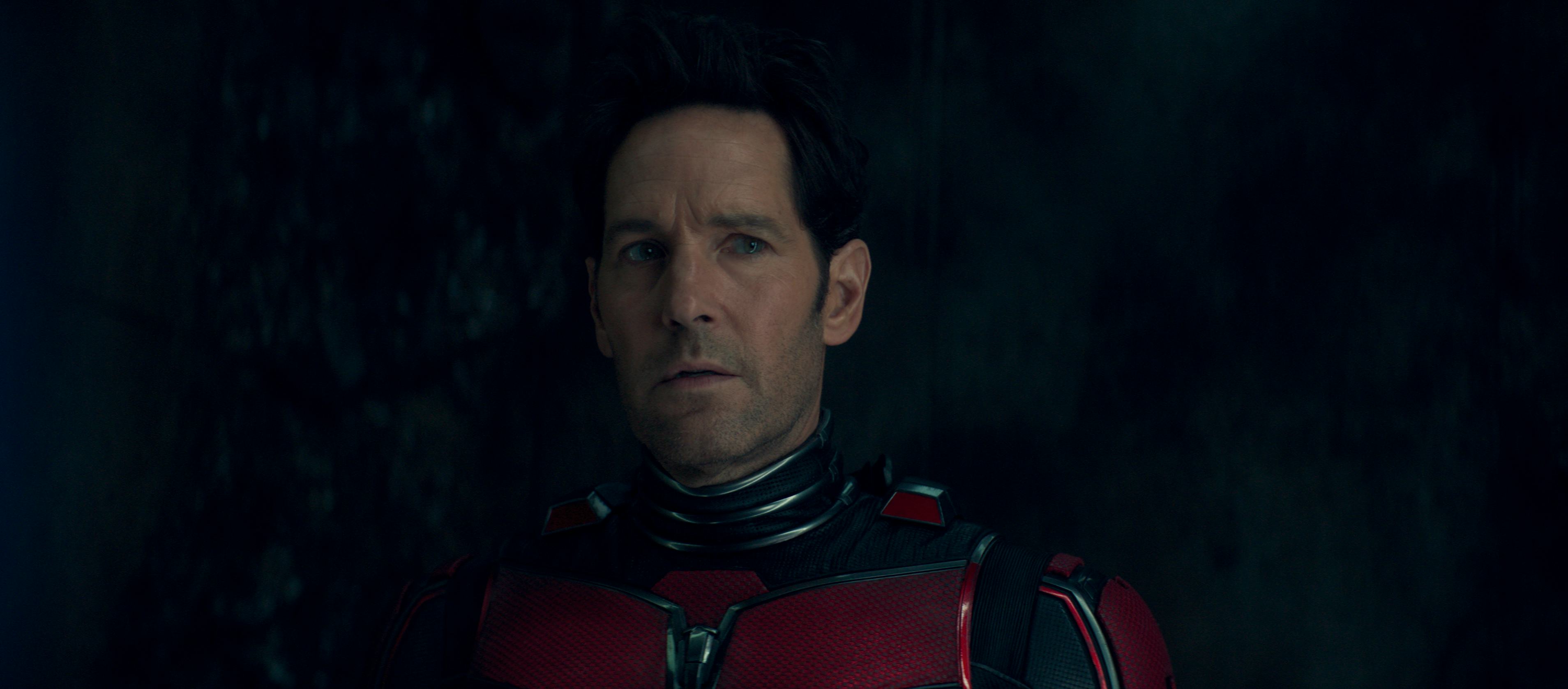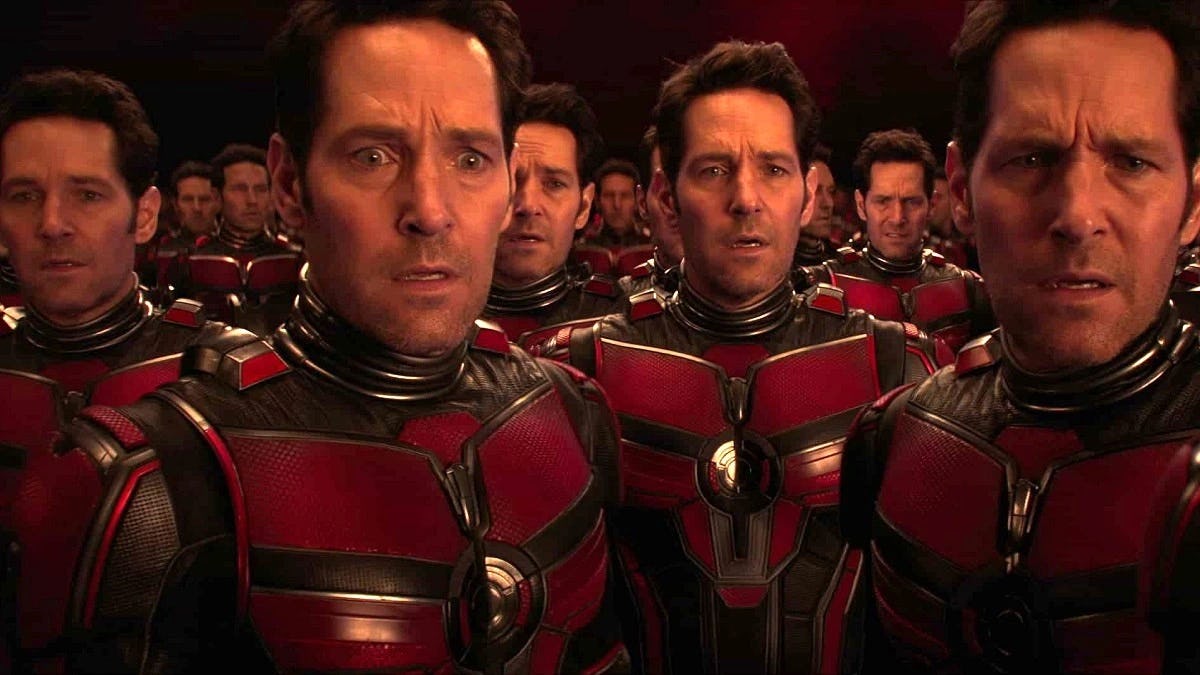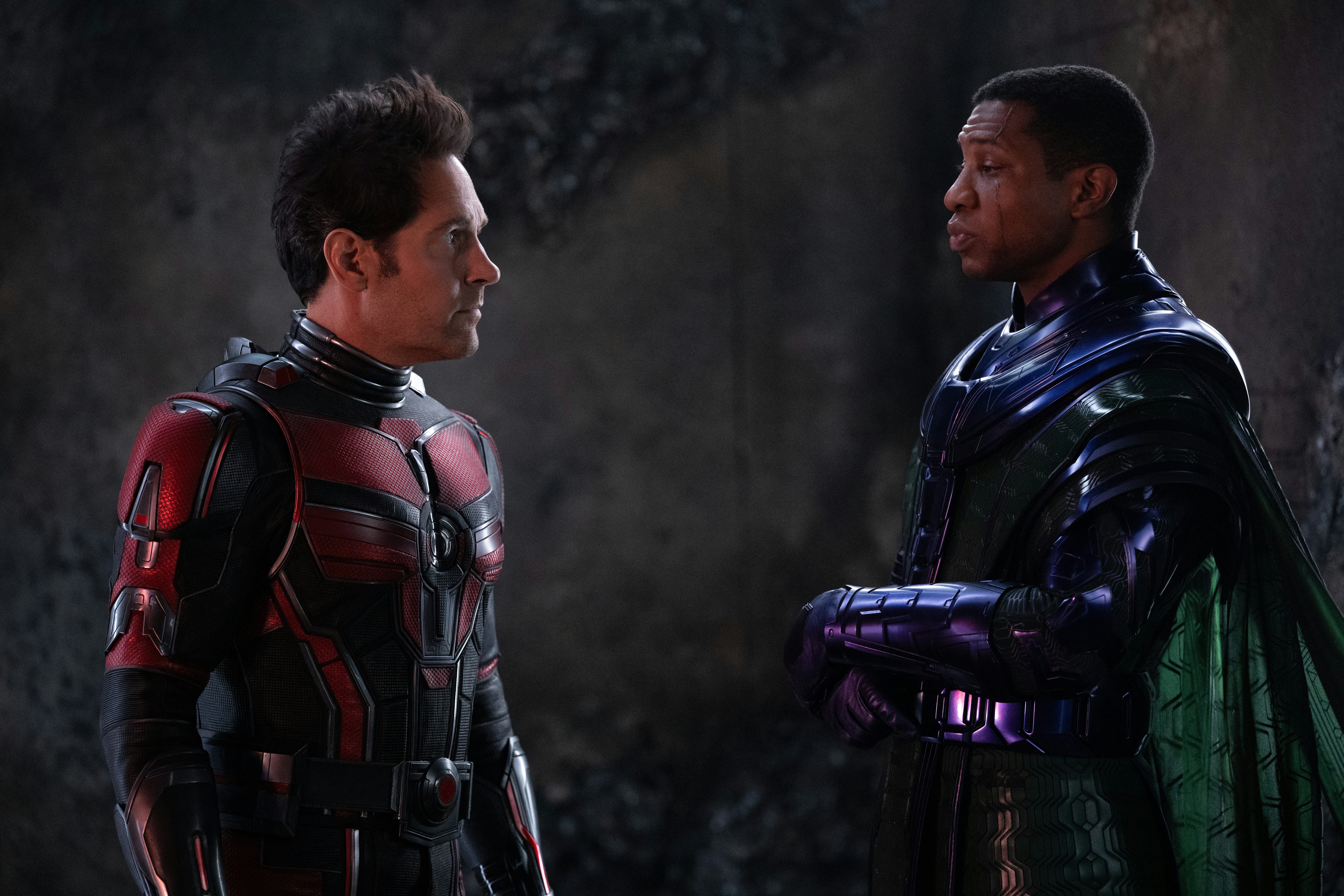
Over 30 movies compose the epic Marvel Cinematic Universe. But the latest, Ant-Man and the Wasp: Quantumania directed by Peyton Reed, does something pretty unusual for the genre in how it ends.
Warning: Spoilers for Ant-Man and the Wasp: Quantumania ahead.
In Quantumania, starring Paul Rudd back in the title role, Scott Lang — aka, “Ant-Man” — ends up in the Quantum Realm where he does battle with the charismatic Kang the Conqueror, played by a magnetic Jonathan Majors.
Like most superhero movies, Quantumania ends on a familiar note of good triumphing over evil. Except this time, the hero isn’t confident the job is done. In fact, as audiences are reminded through Scott’s internal (and panicked) narration, the worst is yet to come.
“I thought that was something you can only do in an Ant-Man movie,” Loveness tells Inverse, “Instead of just having a heroic sacrifice, where the swell of the theme is in a different octave or something, I wanted to lean on Paul Rudd’s everyman quality.”

Adds Loveness: “Superheroes are pretty certain all the time. I thought it'd be really fun to have a guy who starts out carefree and nothing left to prove. Suddenly he becomes the hero his daughter wants him to be, but he’s not carefree anymore. Now he’s keeping secrets from his family.”
At the end of Quantumania, Scott realizes his “victory” over Kang may have doomed the world. Remember, Kang tells Scott that something is coming, and that his death is only the beginning. As the movie’s credits scenes later reveal, there’s an impossible number of Kang variants — all of whom make up the Council of Kangs — who seem more than ready to take over the multiverse. A scenario as grave as this dawns on Scott when he’s back home in San Francisco, when the ex-thief turned Avenger/podcaster/best-selling author feels his smile turning upside down.
Jeff Loveness says the ending isn’t just a hint at future Marvel movies, but future problems for Ant-Man. When Kang’s dynasty begins its reign, it may be Ant-Man on whom the other Avengers pin the blame. “No matter how much he wants to eat that bad cake and have a fake birthday for his daughter, he knows something’s up,” Loveness says.
According to Loveness, what kills Scott (metaphorically) is that Kang may be a villain, but he isn’t a liar. So whatever Kang warns to Scott should be taken as gospel.
“Kang says a lot of stuff in this movie, and he’s not lying,” Loveness says. “You get drawn up in the adventure, but once you get a second to think, we bring that back. Like, Oh wait, he said something really bad is coming, and he was the only one who could stop it.” Over Zoom, Loveness laughs at the fact it’s Ant-Man, of all people, to inadvertently end the world. “He’s like, ‘I didn’t just kick him into [oblivion]?”

The ending of Quantumania impressively splits the difference between being a lighthearted Marvel movie with Paul Rudd, and serving as the critical opening of the multiverse-centric Phase Five. The next Avengers sequel, Avengers: The Kang Dynasty (which Loveness is also writing) is set for release in 2025, followed by Avengers: Secret Wars the year after.
Loveness, who previously wrote episodes of the animated sci-fi hit Rick & Morty, describes the ending of Quantumania as adhering to Rick & Morty co-creator Dan Harmon’s “Story Circle,” an approach to plotting narratives where the protagonist returns to their surroundings feeling changed. For someone like Scott Lang, the fight may be over, but the secret wars are just getting started.
“In a story circle kind of [way], it’s Frodo coming home to the Shire. The pumpkins aren’t that big anymore,” Loveness says. “Something’s different.”







